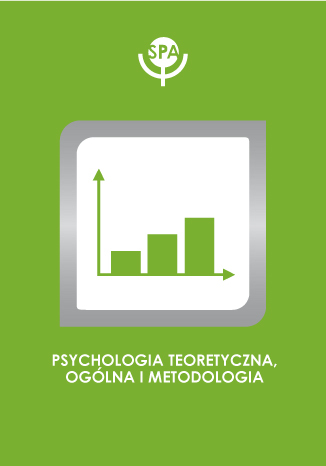Badanie trafnoŇõci egzaminu z przedmiotu "Diagnoza psychologiczna"
Kategorie: Biznes i ekonomia, Dla dzieci, Edukacja, Informatyka, Inne, Jńôzyki obce, Literatura, Nauki spoŇāeczne, Poradniki, Prawo, Przewodniki i podr√≥Ňľe, Psychologia
 Badanie trafnoŇõci egzaminu z przedmiotu "Diagnoza psychologiczna"
Badanie trafnoŇõci egzaminu z przedmiotu "Diagnoza psychologiczna"Autor: WŇāadysŇāaw Jacek Paluchowski, Piotr HaŇāadziŇĄski
Cena: 5.00 zŇā
Data wydania:
Liczba stron:6
Oprawa:
Format eBook:
W niniejszym artykule zostaje podjńôta problematyka trafnoŇõci testu wiadomoŇõci z przedmiotu Diagnoza psychologiczna na studiach psychologicznych. TrafnoŇõńá testu wiadomoŇõci jest jego najwaŇľniejszńÖ charakterystykńÖ. Informuje bowiem o stopniu adekwatnoŇõci operacjonalizacji oraz stopniu, w jakim test jest w stanie osińÖgnńÖńá stawiane mu cele. JednńÖ z form badania teoretycznej trafnoŇõci testu moŇľe byńá analiza zmian nieprzypadkowych wynik√≥w testu por√≥wnywanie wynik√≥w dwukrotnego badania tym samym testem gdzie w przerwie mińôdzy badaniami wprowadza sińô manipulacjńô eksperymentalnńÖ. Wynik por√≥wnywania powinien byńá zgodny z zaŇāoŇľonymi efektami manipulacji. Podobnie moŇľna postńôpowańá w odniesieniu do trafnoŇõci testu wiadomoŇõci, badajńÖc wpŇāyw udziaŇāu w zajńôciach na wyniki w takim teŇõcie. W przeprowadzonym badaniu por√≥wnywano wyniki egzaminu student√≥w kt√≥rzy ukoŇĄczyli kurs diagnozy psychologicznej z wynikami student√≥w, kt√≥rzy jeszcze nie uczestniczyli w kursie. PotwierdziŇāa sińô hipoteza, Ňľe odbycie kursu z przedmiotu Diagnoza psychologiczna ma dodatni wpŇāyw na wyniki uzyskane przez student√≥w w teŇõcie wiadomoŇõci z tego przedmiotu. W dalszej czńôŇõci artykuŇāu dokonano takŇľe analizy pytaŇĄ r√≥ŇľnicujńÖcych grupy student√≥w po wykŇāadzie i przed wykŇāadem.
In this article the validity of a psychological assessment knowledge test is discussed. Validity is an absolutely crucial characteristic of the educational test. It provides information on the adequacy of operationalization and the level to which the test meets established demands. An efficient method to define construct validity might be the analysis of non random changes in test scores. It applies comparing test scores before and after inputting experimental manipulation. The results ought to reflect the causal effect of the manipulation. This method can be successfully implemented in determining validity of an educational test-by investigating the impact of class attendance on test scores. In this study we compare scores for psychological assessment knowledge test. Two comparison groups were formed on the basis of completing the academic course of psychological assessment. The analysis revealed a significant interaction between the completion of the course and the test scores, confirming that the test scores varied significantly depending on the completion of the psychological assessment course. In the latter section we conducted an analysis of the questions which differentiated comparison groups.
In this article the validity of a psychological assessment knowledge test is discussed. Validity is an absolutely crucial characteristic of the educational test. It provides information on the adequacy of operationalization and the level to which the test meets established demands. An efficient method to define construct validity might be the analysis of non random changes in test scores. It applies comparing test scores before and after inputting experimental manipulation. The results ought to reflect the causal effect of the manipulation. This method can be successfully implemented in determining validity of an educational test-by investigating the impact of class attendance on test scores. In this study we compare scores for psychological assessment knowledge test. Two comparison groups were formed on the basis of completing the academic course of psychological assessment. The analysis revealed a significant interaction between the completion of the course and the test scores, confirming that the test scores varied significantly depending on the completion of the psychological assessment course. In the latter section we conducted an analysis of the questions which differentiated comparison groups.
